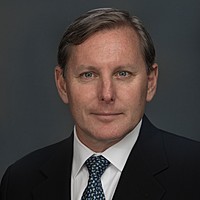Revival of the fittest? The 2022 outlook for post-pandemic emerging markets

redwheel
2021 was a challenging year for emerging markets due to slowing global growth, the spread of new COVID-19 variants and the impact of China’s regulatory tightening.
New variants of COVID-19 formed a significant part of the economic landscape in 2021. In particular, the Delta and Omicron variants monopolised the year, but high vaccination rates allowed the gradual easing of mobility restrictions.
Emerging market countries displayed a tightening bias as part of efforts to rein in inflationary pressures and pre-empt any tightening by the U.S Federal Reserve (U.S Fed) to mitigate risks of capital flight.
China was a key concern as tighter fiscal and monetary policies, regulatory changes driven by “Common Prosperity” and a zero-COVID-19 tolerance hampered investor sentiment.
Despite the negative performance of emerging markets as a whole, signs of a revival outside China started to show – driven by rising prices for commodities, manufacturing strength in select countries, the rise of the digital economy in emerging markets and the economic and financial discipline shown by the emerging world leaders.
Looking ahead to 2022
We remain constructive about the outlook for 2022. Valuations remain attractive with the discount of emerging market equities to developed market equities expanding further in 2021. Current account balances reflect the amount nations need to borrow abroad to finance their purchases and have shifted into surplus as institutional reforms in major emerging markets have strengthened their economic discipline against crises. Many emerging market central banks continue to normalise rates and remove monetary stimulus as their economies recover.
Early normalisations will potentially prevent further corrections or aggressive reactions to global economic conditions, while the resilience of emerging markets should continue as they are well positioned to benefit from strong growth this year.
China’s regulatory uncertainty could also continue. However, regulatory clarity should eventually return, as it has in previous political cycles. China’s authorities have shown that they remain dovish and pro-growth. It appears that the People’s Bank of China is accelerating easing measures to stay ahead of the curve and to prevent expectations and demand from softening further.
South Korea and Taiwan could see continued export growth on the back of robust demand for technology hardware. In India, strong export demand and government capex will remain the key drivers of growth. Europe, Middle East and Africa (EMEA), Russia and South Africa are supported by strong commodity prices while in Latin America, Brazilian elections remain a risk. However, valuations have fallen to extremely low levels, creating interesting investment opportunities.
Drivers of performance in 2022
Across emerging markets, positive structural drivers remain present and new investment opportunities are likely to emerge. The widespread commitments by most developed, and some developing, countries to achieve carbon neutrality is likely to intensify electrification and renewable energy efforts, creating multi-annual support for the relevant industries.
Solar and wind power are set to play a more important role, while producers of “green wave” materials, like copper, uranium and lithium may also be beneficiaries of this trend.
The recovery of global travel will also be a boost to those emerging economies where tourism is a large proportion of GDP - for example Greece. Tourist destinations offer exposure to the release of pent-up demand following COVID-19’s disruption.
This information is current as at 27th January 2022.
Never miss an insight
Enjoy this wire? Hit the ‘like’ button to let us know. Stay up to date with my content by hitting the ‘follow’ button below and you’ll be notified every time I post a wire.
Not already a Livewire member? Sign up today to get free access to investment ideas and strategies from Australia’s leading investors.
5 topics

John joined RWC Partners in March 2015 from Everest Capital to co-manage the Emerging and Frontier Markets team with James Johnstone. He has 23 years of experience in global investment management, commodity, debt and equity research analysis.
Expertise

John joined RWC Partners in March 2015 from Everest Capital to co-manage the Emerging and Frontier Markets team with James Johnstone. He has 23 years of experience in global investment management, commodity, debt and equity research analysis.
